Can you really visit Florence without wandering through the door of one of the city’s jaw-dropping museums? The birthplace of the Renaissance has plenty of museums to explore.
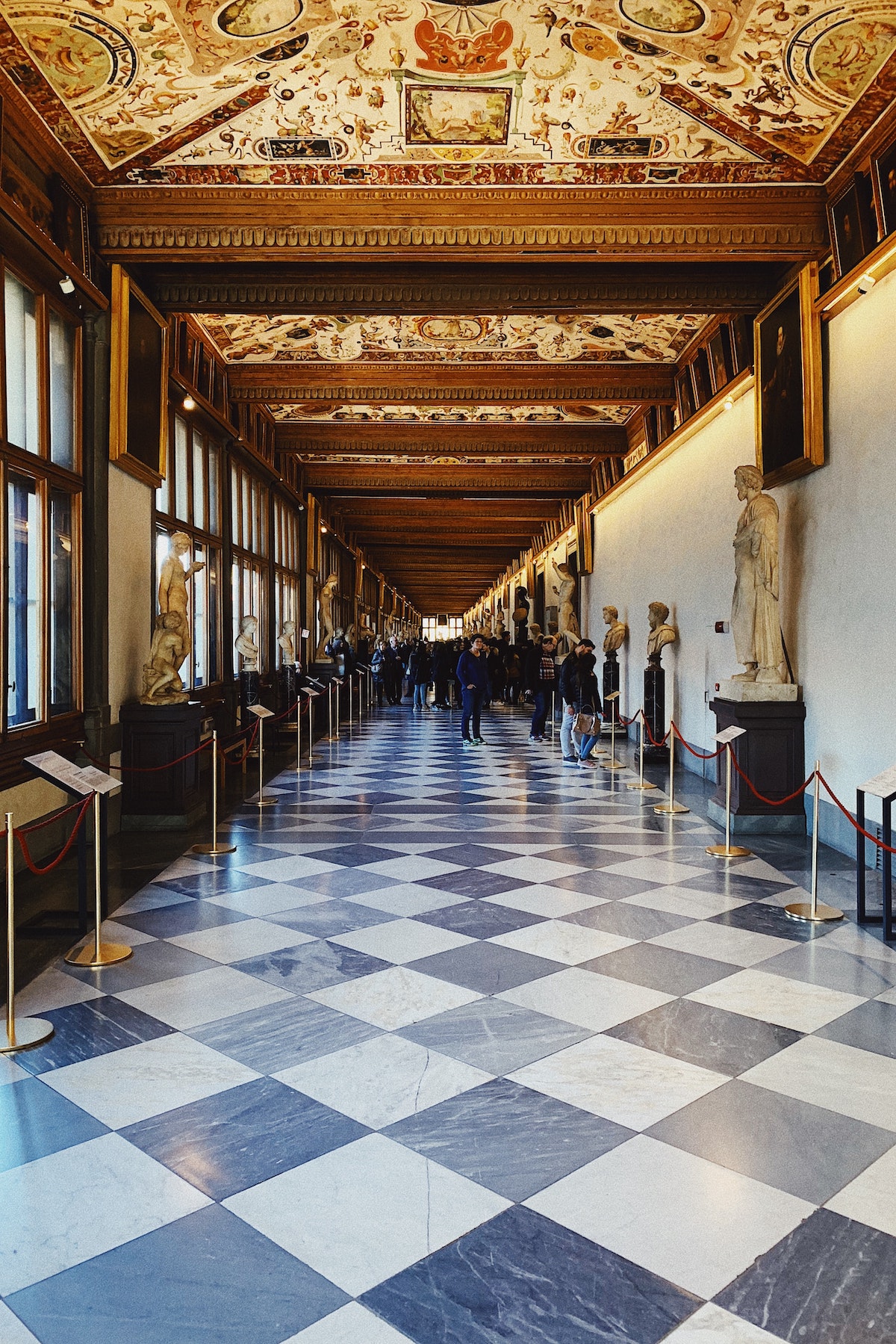
On your trip, you’ll be able to come close with original works by Michelangelo, Brunelleschi, and many more masters of Italian history. These Florence museums are a door into the past, letting you explore all that makes this city one of the most intriguing in the world.
Things to Know Before Visiting Florence’s Museums
Book in Advance
For some of Florence’s more popular attractions, like the world-renowned Uffizi or Accademia museums, you’ll definitely want to make sure you’ve booked ahead. If you show up the day of, you may find you have to wait in line for quite a while—or worse, be left without any ticket at all!
Some of these Florence museums you definitely won’t want to miss on your trip, so play it safe and check for tickets ahead of time. Make sure you check the official museum website beforehand, and you can save a few euros by booking through the museum directly as opposed to third-party sites.
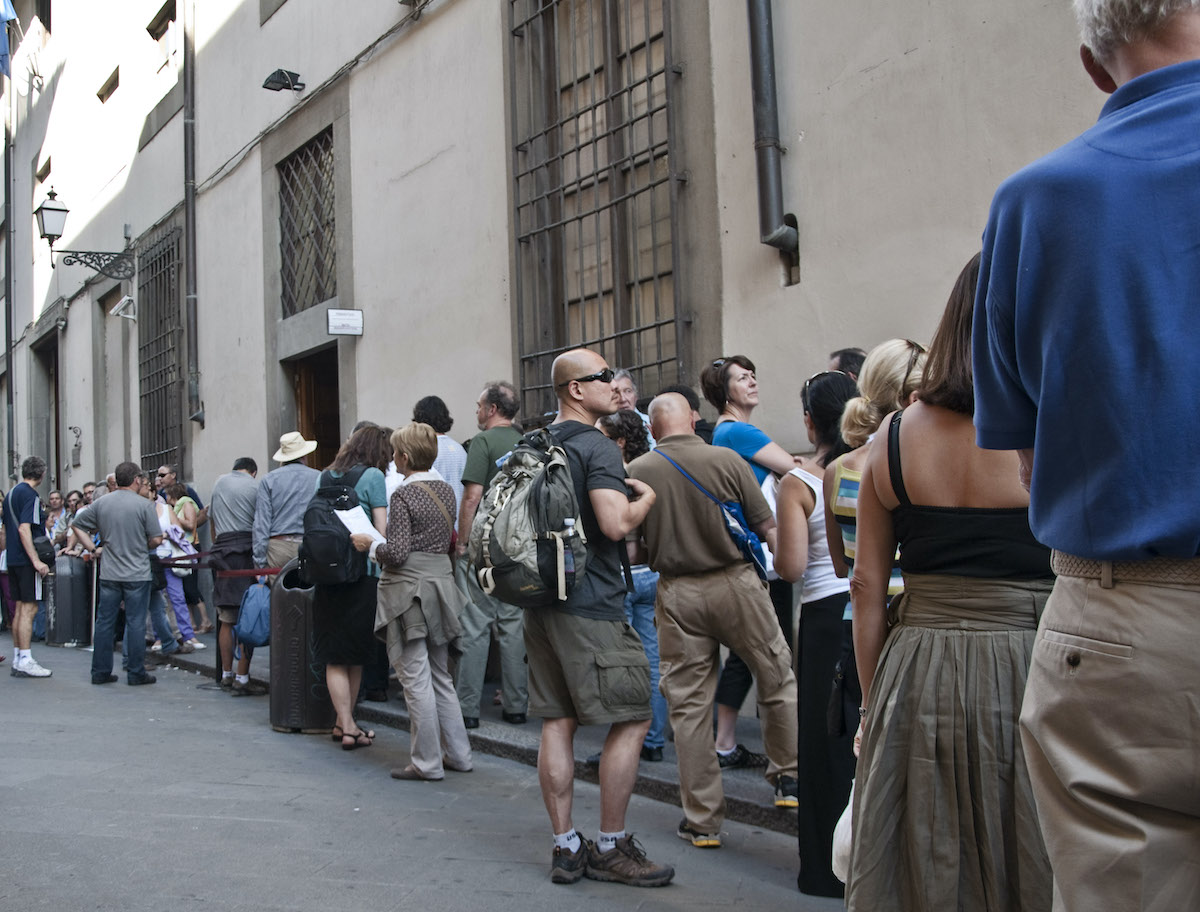
Get the Firenze Card
If you’re spending some time in Florence and want to fit in a few of the city’s fantastic museums, then you might want to check out the Firenze Card.
The Firenze card is valid for three days, and gives you entrance to all of Florence’s museums. It costs €85 and is valid for 72 hours from first use. It only allows you one entrance to each museum, so make it count!
If you’ve got this card, you won’t need to book your tickets at each individual museum. You can simply skip the line and go ahead into your chosen museum or exhibition.
The Essential Florence Museums to Visit
Discovering Florence’s museums is a must on your trip, so let’s explore some of the highlights!
1. The Uffizi
As one of the most famous art museums in the world, you can’t miss the Uffizi on your trip to Italy.
The name “Uffizi” actually refers to ufficio, or offices. The museum got its name as it was originally built in 1560 to house the administrative offices of the city as commissioned by the Medici family. It was gifted to the state as a museum in the mid-1700s.
The Medici, one of the most powerful families in Florence’s history, began collecting artworks and artifacts. Slowly and over time, it grew to be the massive collection of today’s Uffizi. Here you can find famous works by legends such as Raphael and Botticelli.
Along the long golden corridors of the Uffizi and hidden in the side rooms, you’ll find works such as “The Birth of Venus” and “Primavera” by Botticelli, “Doni Tondo” by Michelangelo, “Venus of Urbino” by Titian, “The Medusa” by Caravaggio, and many more.
If you have time for only one Florence museum on your trip, this is definitely where you should head—and don’t forget to book in advance!
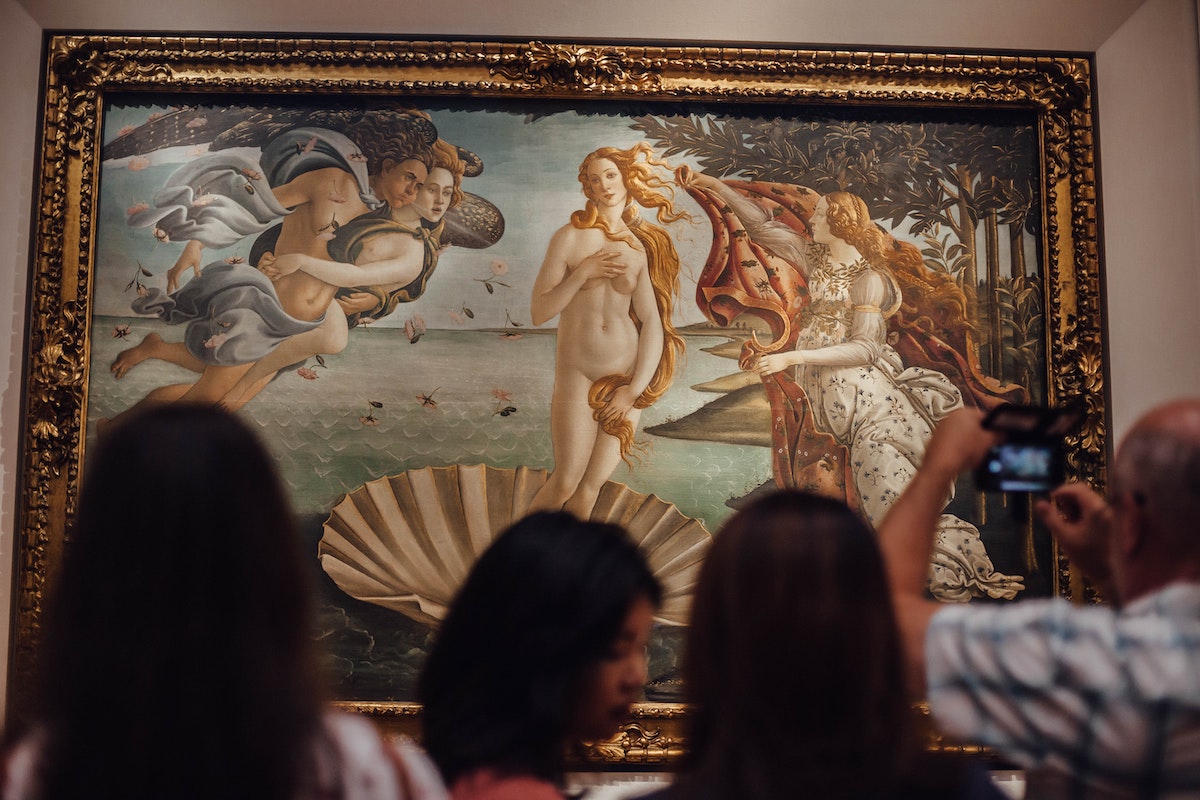
2. Galleria dell’Accademia
Along with the Uffizi, a visit to the Accademia is not to be missed for true art history lovers. This is, after all, where the statue of David—whose glance has captivated thousands around the world—finds his home.
The gallery itself has been around since 1787. While originally thought of being a bit of a Michelangelo-centric museum, its collection has grown beyond the master sculptor. Today you’ll even find a unique gallery of historic musical instruments here.
While David stands bathed in light in the center, don’t skip over the masterpieces lining the hall. What looks like rough marble blocks are actually Michelangelo’s famous unfinished “Slaves.” These were non-commissioned pieces—habitual work that Michelangelo created on his own—and are stunning as you can see the full process of Michelangelo’s genius.
You’ll discover many more beautiful pieces at the Accademia and find yourself quite in awe, but overall it’s a smaller museum than others. You can fit a visit into a morning before an afternoon of exploring the city center.
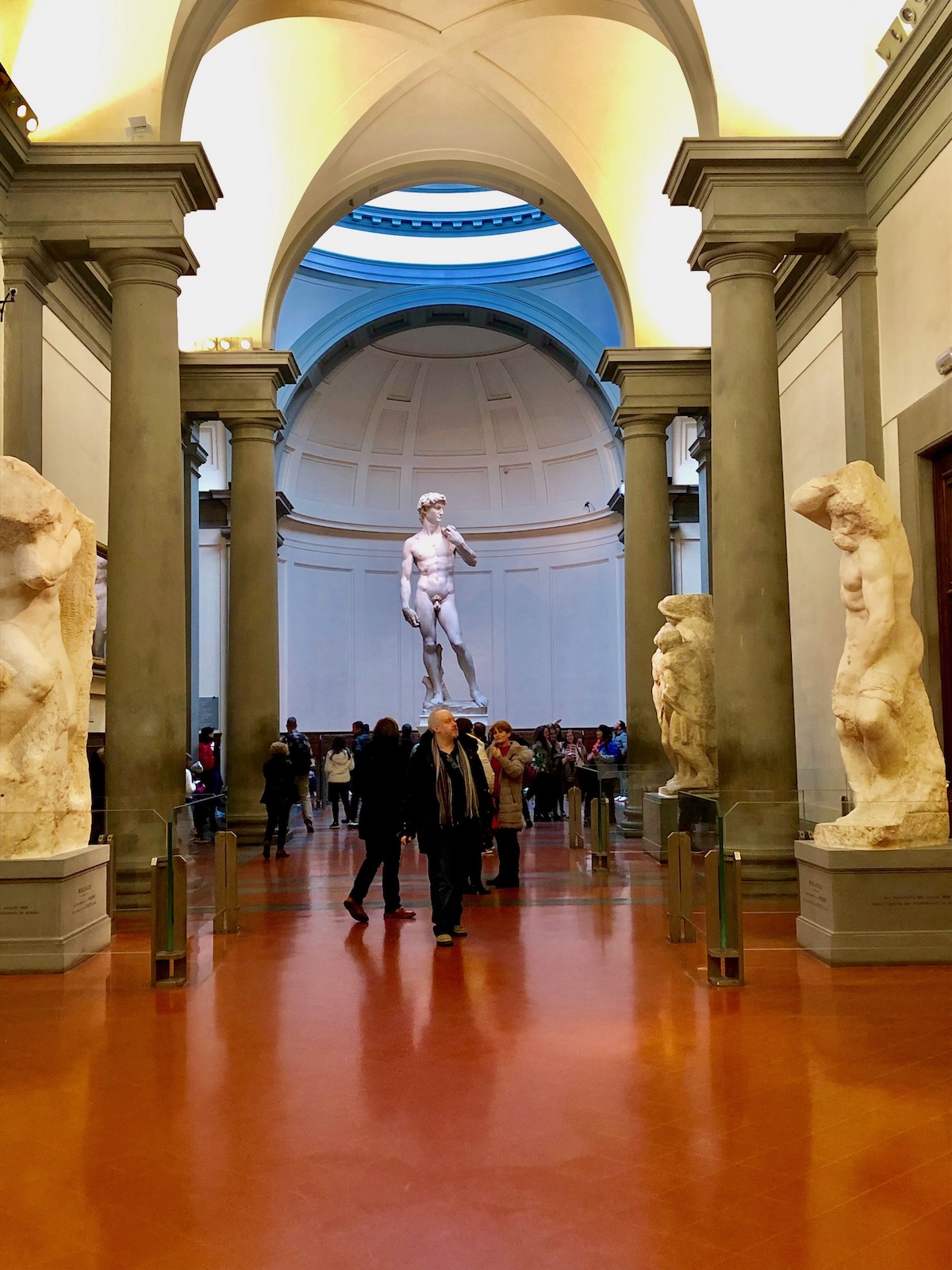
3. Bargello National Museum
Located in the stunning Bargello Palace, this museum is dedicated to the art of sculpture. Every room and hall is filled with marble and granite masterpieces.
For you Michelangelo fans, this is another great stop on your Florence trip—here you’ll find a room entirely dedicated to him. Look out for his famous Bacchus sculpture and “Pitti Tondo,” another famous unfinished work.
The Pitti Tondo is a particularly interesting piece as it depicts Mary with Jesus, but rather than a newborn baby, he is a little toddler. Quite different from the other depictions of Mary and child.
But the works of Michelangelo aren’t all you’ll find in the rooms of the Bargello. Here you will also find masterpieces by Donatello, Ghiberti, Cellini, Giambologna, and many, many more Florentine artists.
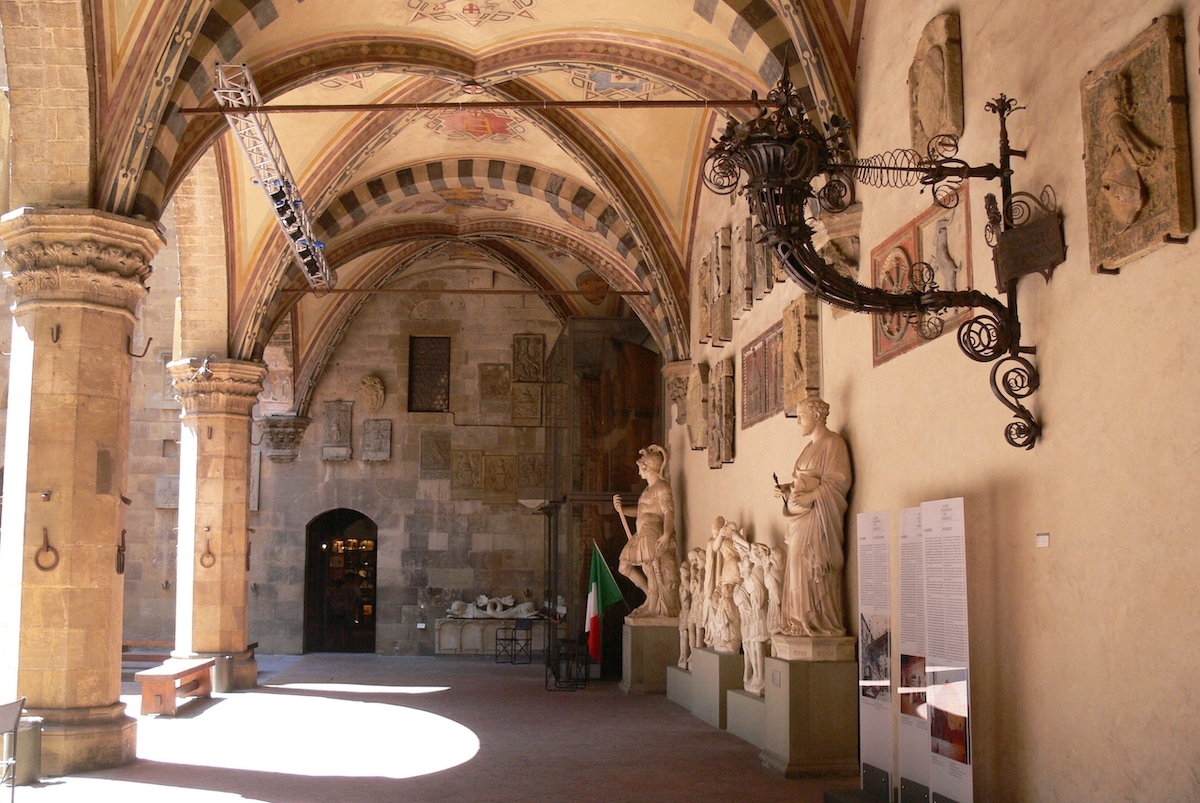
4. Opera Duomo Museum
Ever wonder what went into building Florence’s gorgeous Duomo? The church stands strong in the center of the city, the stunning dome of Brunelleschi the main element of Florence’s skyline. But it took centuries to become the beauty that it is, and you can peek into that historic process at the Opera Duomo Museum.
Enter this museum and look into the genius of Brunelleschi and his great dome. More than just the dome, you’ll get to be up close with the church’s historic collection of sculptures.
One of the most impressive pieces is the “Pietà” by Michelangelo (not to be confused with his sculpture of the same name in the Vatican), a unique piece that shows Nicodemus holding up the body of Christ after his death while two of the Marys help him.
This is another work Michelangelo abandoned; he was unhappy with the marble, claiming it was flawed so gave up the work. For this reason, you might notice Christ himself is missing a leg.
Another curiosity about this piece is that it is said Nicodemus was actually a self-portrait of Michelangelo. The Museum of the Duomo allows you to get so close to it that it’s like seeing the great artist up close and personal.
While a museum dedicated to a church may not at first glance seem enticing, don’t overlook it! This museum is beautiful with plenty of hidden gems.
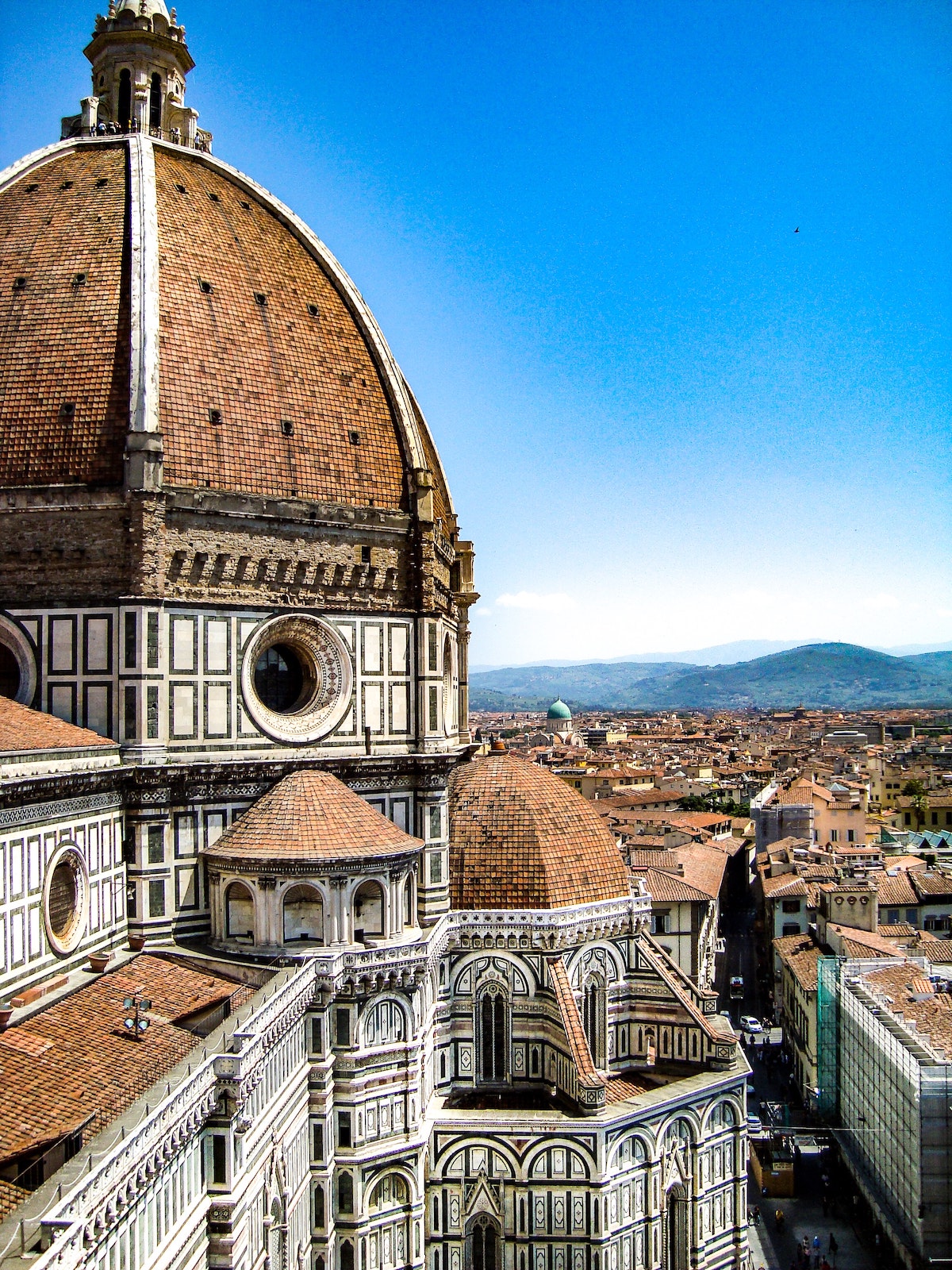
5. Strozzi Palace
For something a little different, spend an afternoon at Strozzi Palace. Unlike the Florence museums with unchanging masterpieces, Strozzi Palace is dedicated to the history of the city and hosts changing exhibitions focused on more contemporary art pieces. Their exhibition changes every few months.
Strozzi never disappoints with their exciting exhibits. Get a taste of the contemporary in the halls of this gorgeous Renaissance palace.
The palace is located right in the center of Florence which means you can pop in for a quick visit between your lampredotto lunch and a dinner of Florentine excellences.
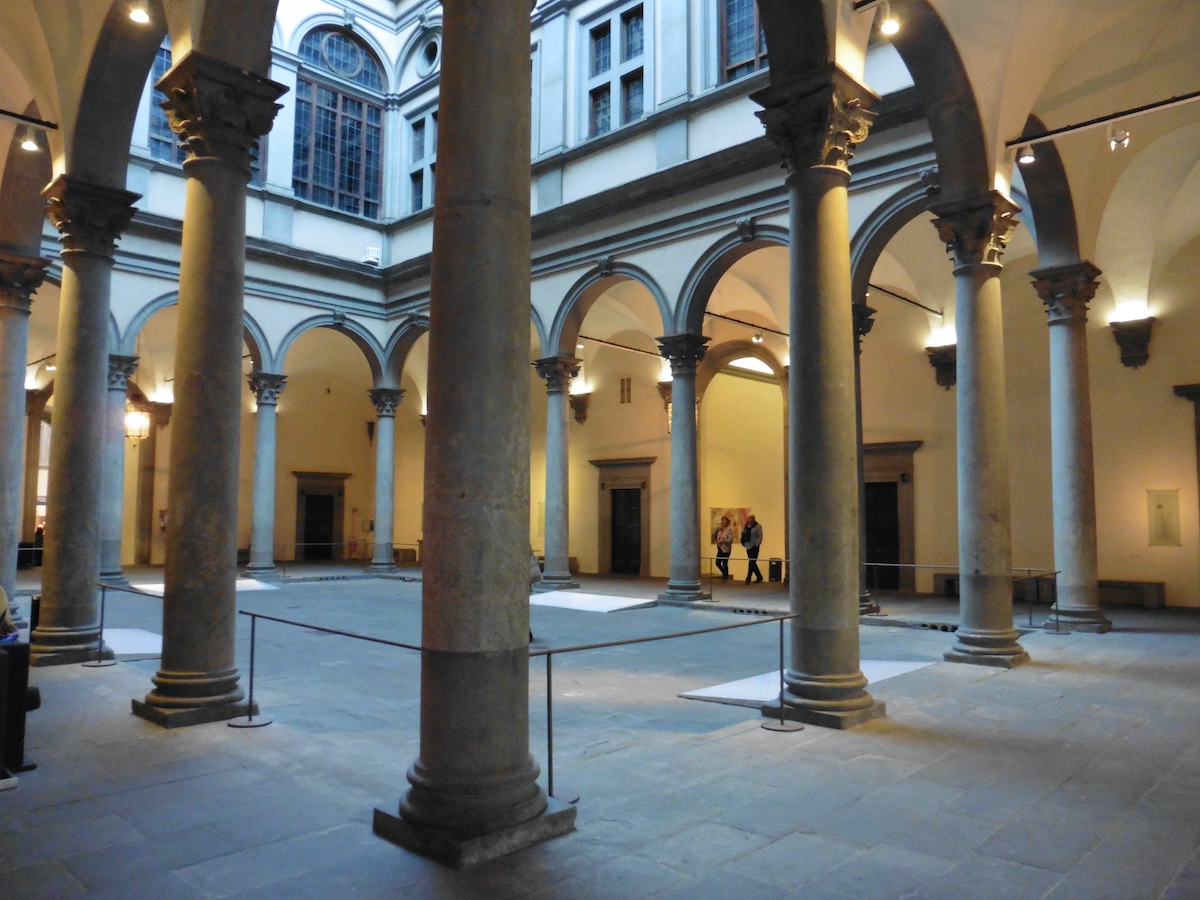
6. Palazzo Vecchio Museum
Step into one of Florence’s most symbolic palaces, a true mark of the city’s architectural style to discover centuries of art history. This palazzo is one of the most interesting sites of the city, both outside and in.
You might notice that Florence’s palaces look a bit more like fortresses than fairytale castles. In fact, the palace halls were meant to double as fortifications and municipal halls. Palazzo Vecchio is where the government body of the Republic of Florence managed all city matters during the Middle Ages.
Inside, you won’t find singular masterpieces. Rather, the palace itself and its intricate design and frescos are the real attraction. This is one of the best Florence museums to visit if you’re put off by large crowds. While the piazza out front may be quite busy, not as many visitors wander into the palace halls.
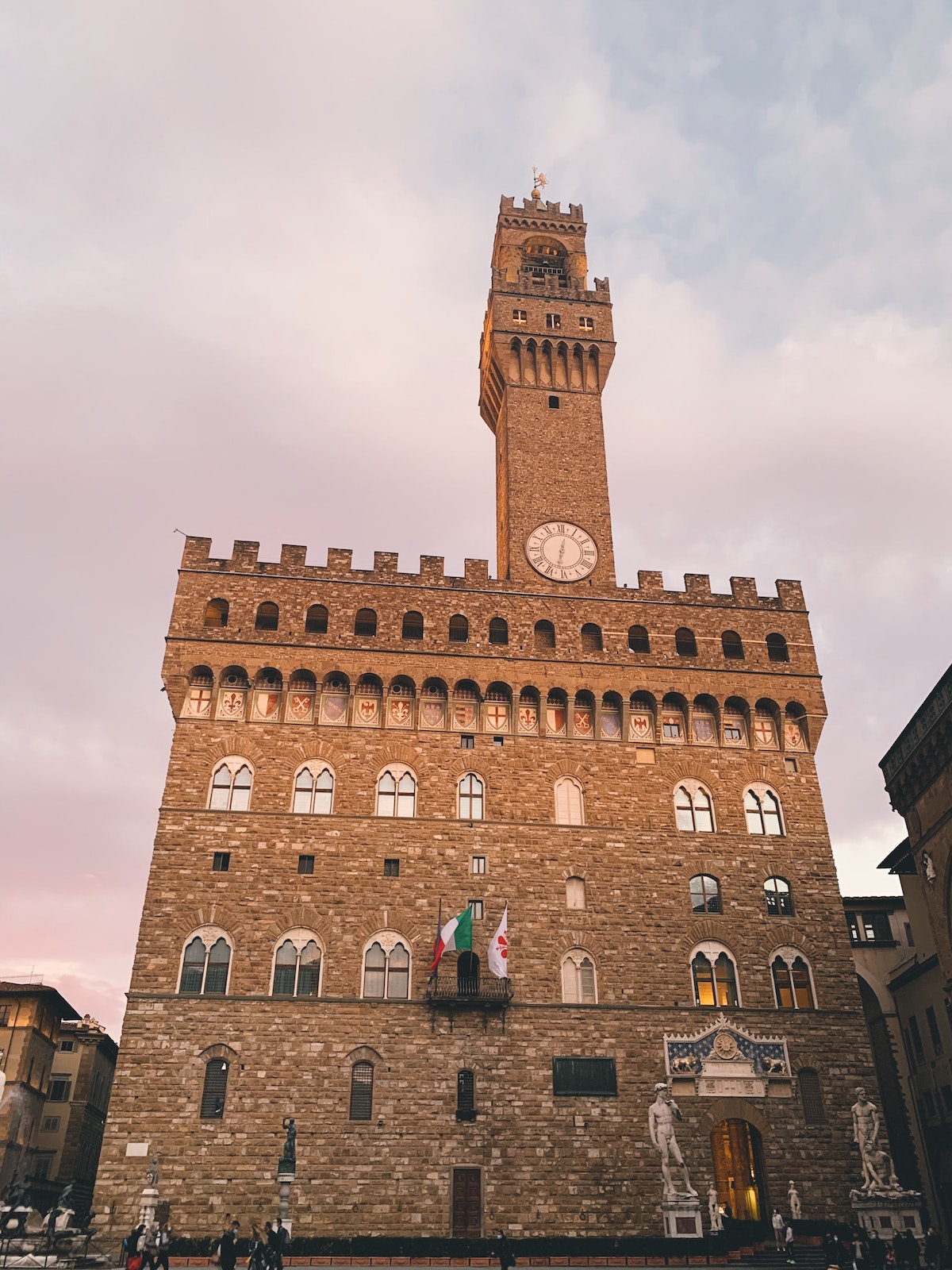
7. Ferragamo Museum
Italy isn’t all ancient history—it’s also fashion! And Florence happens to be home to a few of Italy’s major fashion houses.
Ferragamo has had their headquarters here since 1927, and the brand showcases its beautiful history through the Ferragamo Museum. So when you’re tired of Michelangelo, take a break and have a look at another masterpiece: the beautiful shoes of Ferragamo.
At this unique museum, you’ll learn more about how these artisan shoes are designed and made and marvel in awe at the incredible shoe collection. Apart from the fixed collection, the museum also highlights a temporary exhibition of private pieces from the Ferragamo family.
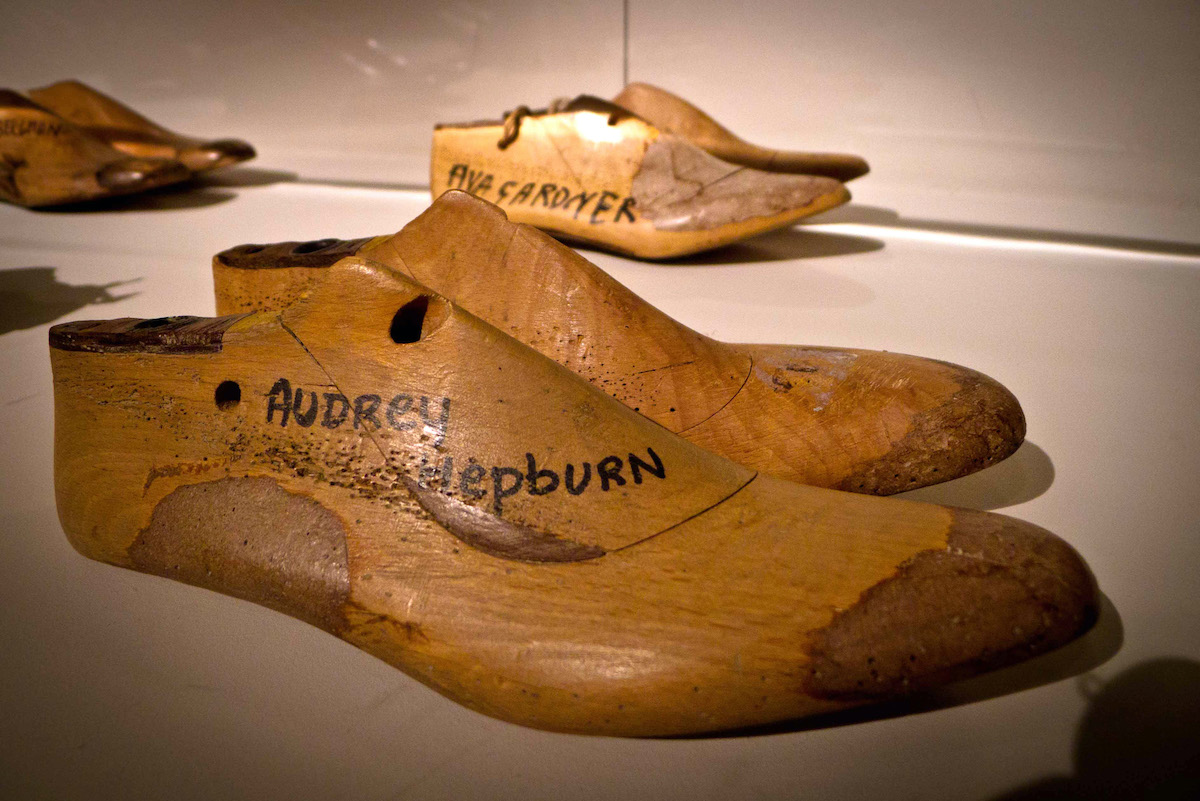
8. Gucci Garden
Fashion lovers, your fun won’t end at the Ferragamo Museum. Gucci is waiting for you just steps away from the Palazzo Vecchio.
Gucci was founded in Florence in 1921, and while the brand has reached worldwide fame, they still love to highlight their hometown. Combining the modern with ancient, the Gucci Garden showcases the fashion house’s collection along the 14th century halls of the Palazzo di Mercanzia.
Here, you can discover how the brand was built and peek at the highlights of their historic collection. But the best part? The Gucci Osteria.
Gucci has teamed up with renowned chef Massimo Bottura to bring the excellence of Made in Italy together. Dine on the best of contemporary cuisine inspired by Gucci’s youthful essence, surrounded by vintage decor. A once-in-a-lifetime experience worth the price tag!
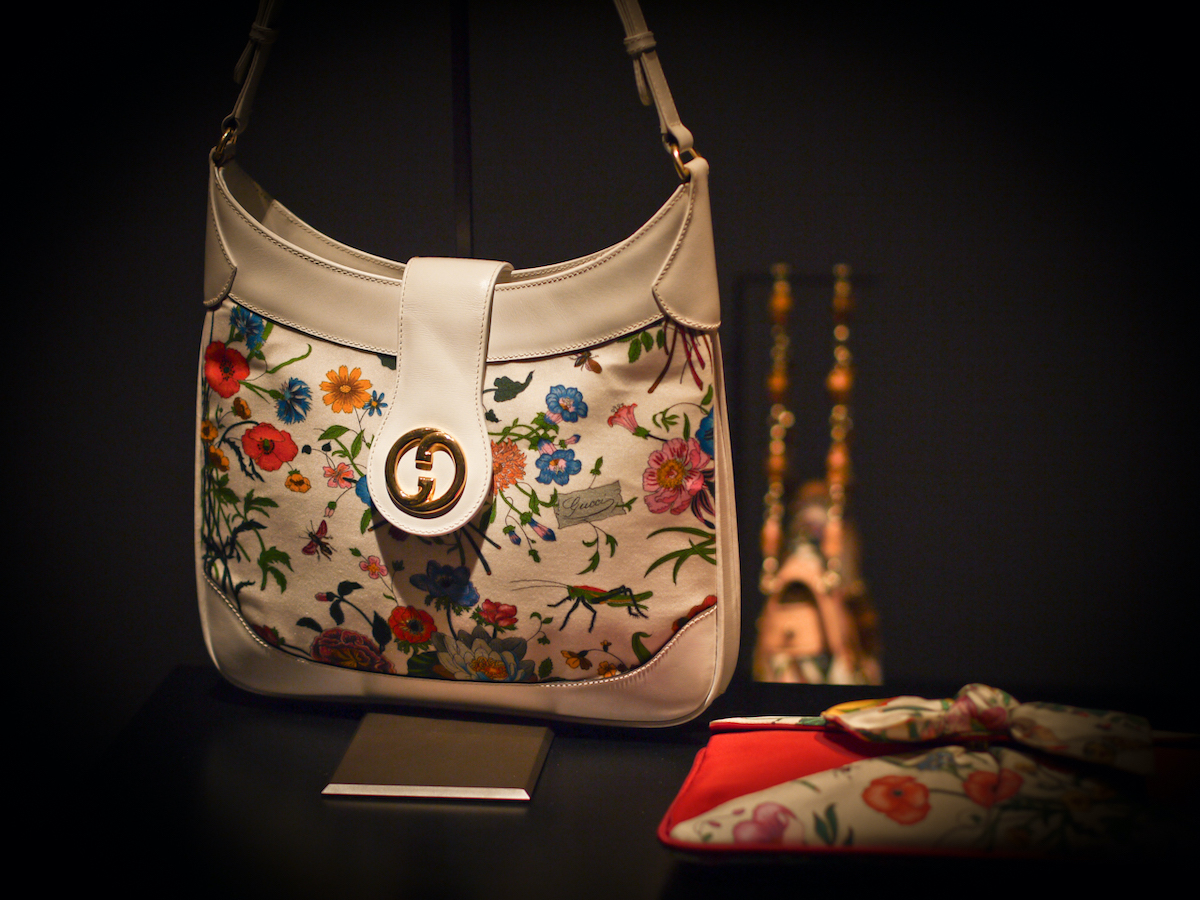
9. Leonardo Da Vinci Museum
By now you’ve explored the masterpieces of Florence’s history and the luxury of the artisan fashion houses. Now it’s time to explore one more side of the city: an inventive side.
At the Da Vinci Museum, the Niccolai family has turned their great passion for the inventor into an interactive museum for visitors from all around the world. They have taken the designs of Da Vinci and built them using methods and materials found in his own time.
If you’re traveling with little ones who start dozing off staring at statues and frescos, take them to this fascinating interactive museum to wake them back up!
10. Palazzo Pitti
When you wander across the Arno and start exploring the southern half of Florence, it will be tough to miss the impressive Palazzo Pitti. One of Florence’s largest architectural monuments, the building is quite simple in decor on the outside, but its halls have much to discover.
The palace is another one of Brunelleschi’s masterpieces, built in the 15th century. It has housed many of Florence’s noble families over the centuries.
A work of art from floor to ceiling, the golden Palatine Gallery is one of the most captivating galleries within the palace. Here you’ll catch works by the greats, such as Raphael, Titian, Correggio, Rubens, Pietro da Cortona, and many more artists of the Renaissance and Baroque periods. Once you work through this gallery, you’ll take a wander through the Royal Apartments, furnished halls with another collection of the great masters.
But Pitti doesn’t only take you to the Renaissance. An entire gallery is dedicated to works by 19th and 20th century Florentine artists and the collection of the Lorraine grand dukes. Your trip to Pitti Palace will also let you explore the Silver Museum, Porcelain Museum, the Museum of Costume and Fashion, and the stunning Boboli Gardens.
The Boboli Gardens are the largest green space in Florence. You can truly get lost in this beautiful green architecture, which includes fountains, amphitheaters, mazes, grottoes, and treelined paths. There is so much to take in!
Make sure you plan a whole day for Pitti so you can fully explore the Palace and the gorgeous gardens. When you’re done, sit down and relax with a great glass of Tuscan wine at Enoteca Pitti Gola.
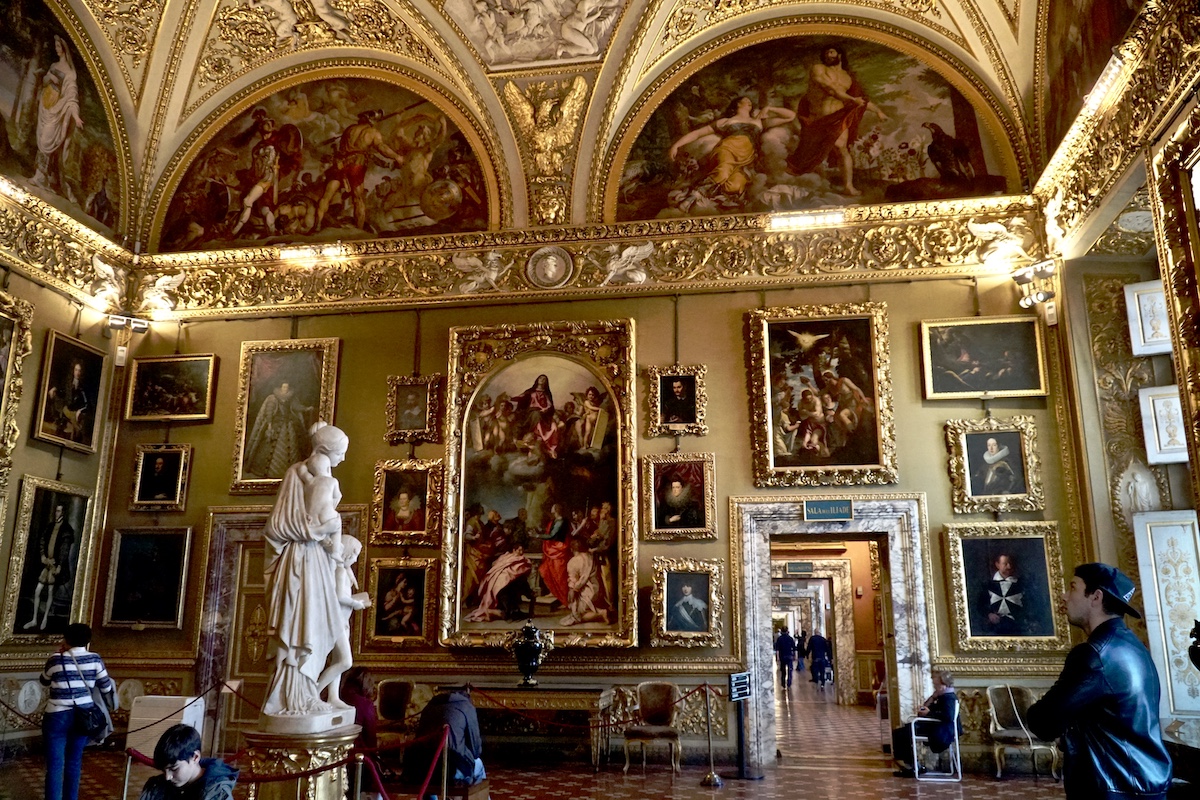
11. Medici Chapels
After you spend time discovering the busy Mercato Centrale, and before you make an aperitivo stop at Casa del Vino, make a quick stop at the Medici Chapels. Just steps away from the Mercato in the Basilica di San Lorenzo, you can enter these small side chapels commissioned by and dedicated to the Medici Family.
The sculpted works are all by Michelangelo himself, showcasing allegorical figures, the classic Madonna and Child, and the patron saints of the family. While the chapel is small, the works are fantastic and are definitely worth a quick peek in. Compared with Michelangelo’s other pieces you’ll be able to see how his style evolved, especially in his Madonna and Child.
For fans of Michelangelo, this is a particularly important stop, and is worth going with a guide if you can. The chapels themselves, architecturally and through the intense sculptures are meant to reflect Michelangelo’s own spirituality, and his philosophy of human life versus life after death. Experienced in context, the Medici Chapels are some of the most impressive works in all of Florence’s museums.
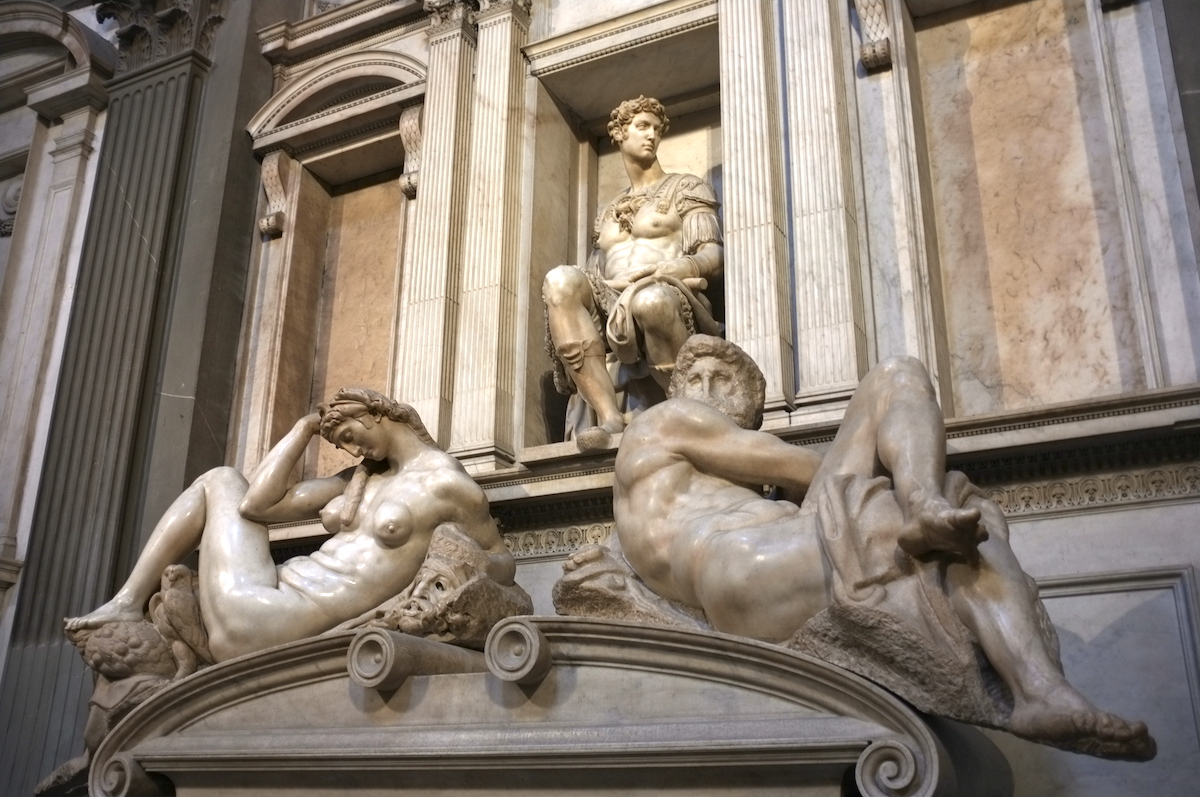
12. Galileo Museum
Take another break from art and discover the story of one of our world’s most famous scientists: Galileo Galilei.
Galileo’s knowledge and curiosity were much beyond his time, and it is him we have to thank for much mathematical knowledge today. Of course, one of his most important theories was that of heliocentricity—the idea that we revolve around the sun—rather than the other way around.
This museum may not be as interactive as the Da Vinci museum, but you will still learn much about the scholar’s life and discoveries. The collection holds many telescopes, maps, and other materials he would have used in his studies.
You’ll find the museum just around the corner from the Uffizi in central Florence, making it an easy reach from wherever you may be exploring.
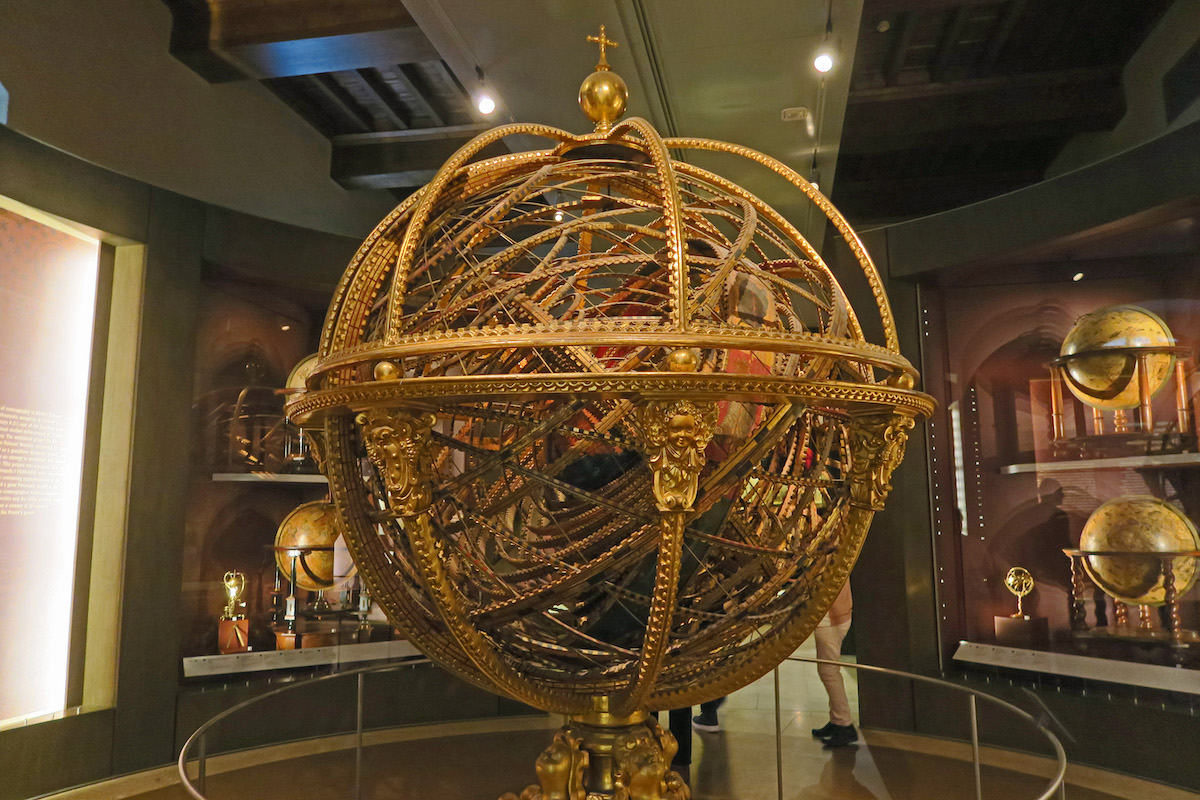
13. Apothecary Workshop of Santa Maria Novella
One of the oldest Florence museums you’ll explore, the Old Pharmacy and Apothecary Workshop of Santa Maria Novella dates back to the 13th century.
It was here that Dominican friars would gather together and work creating balms, salves, and ointments from the herbs of their garden. From this work, it wasn’t long before they naturally began to create perfumes and perfumed liqueurs as well. You can explore their elegant historic shop, lined with intricate wooden display shelves, or even take a step further and explore their small museum showcasing historic jars, bottles, and recipes.
The best part? This workshop is still in business!
Every day the team crafts artisanal perfumes, beauty products, and more. They still follow ancient recipes created by the friars to recreate beloved scents worn even by royalty! Apart from some wine and cheese, one of the unique creations from this shop could be the perfect gift to bring back to your family from Florence.
A More Contemporary Scene
After wandering in and out of historic museums, maybe you’d like to experience a little more of contemporary Florence? While there is no dedicated museum for contemporary art, you’ll find many temporary street artworks and galleries that regularly change their exhibitions.
One of the most famous street artists of Florence is Clet Abraham, whose work you’ll find on many of the city’s street signs. He’s grown to such fame that he even opened up a little studio where you can see more pieces, and buy merchandise featuring his work.
Studio Abba is another international contemporary art gallery that hosts their ever-changing collection in the halls of the 16th century Palazzo Rosselli del Turco. A beautiful meeting of contemporary creativity and antique skill.
Other contemporary Florence art museums you can pop into include Aria Art Gallery, Casamonti, and the Forte Belvedere temporary exhibitions.
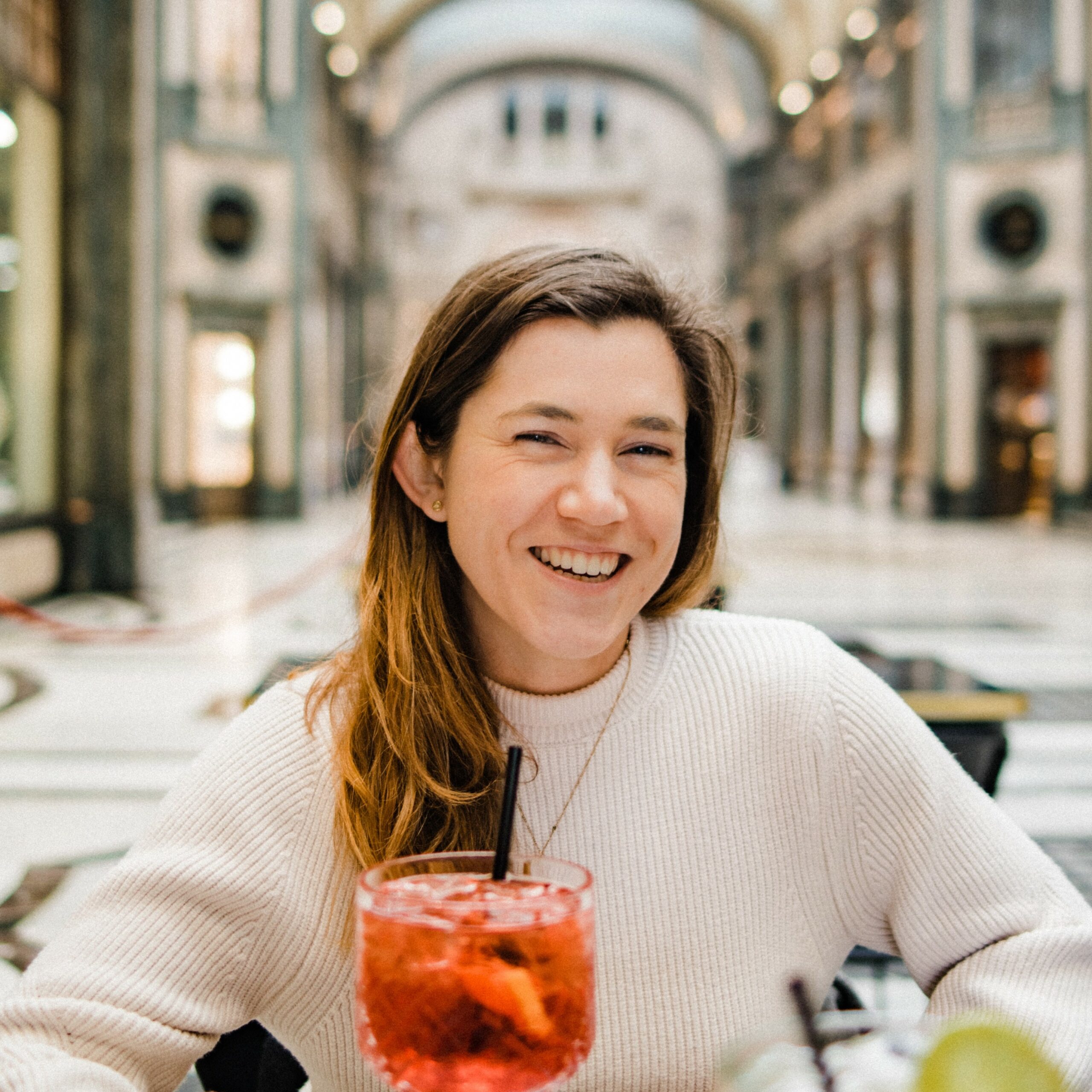
An Italy local for nearly 10 years, Evelyn has traveled to nearly every region getting overly excited about cute doors and nonni cafes. She’s an archaeology and art history major who fell in love with Italian wine, getting her Sommelier and Italian Wine Scholar certifications. She’s transformed her passion for La Bel Paese into a travel planning and relocation consultancy with Colline Alle Montagne. You’ll find her on Instagram @collinemontagne, always sipping a glass of wine and sharing the authentic life in Italy.